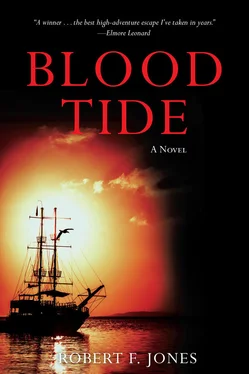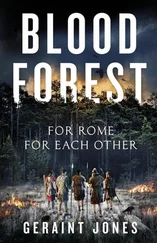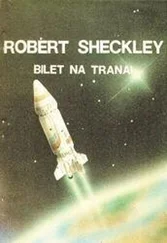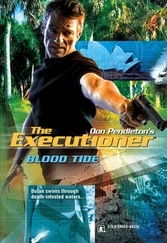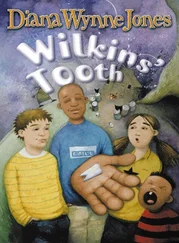Robert Jones - Blood Tide
Здесь есть возможность читать онлайн «Robert Jones - Blood Tide» весь текст электронной книги совершенно бесплатно (целиком полную версию без сокращений). В некоторых случаях можно слушать аудио, скачать через торрент в формате fb2 и присутствует краткое содержание. Год выпуска: 2014, Жанр: Старинная литература, на английском языке. Описание произведения, (предисловие) а так же отзывы посетителей доступны на портале библиотеки ЛибКат.
- Название:Blood Tide
- Автор:
- Жанр:
- Год:2014
- ISBN:нет данных
- Рейтинг книги:5 / 5. Голосов: 1
-
Избранное:Добавить в избранное
- Отзывы:
-
Ваша оценка:
- 100
- 1
- 2
- 3
- 4
- 5
Blood Tide: краткое содержание, описание и аннотация
Предлагаем к чтению аннотацию, описание, краткое содержание или предисловие (зависит от того, что написал сам автор книги «Blood Tide»). Если вы не нашли необходимую информацию о книге — напишите в комментариях, мы постараемся отыскать её.
Blood Tide — читать онлайн бесплатно полную книгу (весь текст) целиком
Ниже представлен текст книги, разбитый по страницам. Система сохранения места последней прочитанной страницы, позволяет с удобством читать онлайн бесплатно книгу «Blood Tide», без необходимости каждый раз заново искать на чём Вы остановились. Поставьте закладку, и сможете в любой момент перейти на страницу, на которой закончили чтение.
Интервал:
Закладка:
Cool and quiet in the sea air of the midwatch. He walked down to the mole, breathing deeply. The moon—just its last waning sliver—already touched the western horizon. A million stars. The respirating sea on the fringing reef sounded a steady thud and hiss. He sat on a bollard and reviewed his battle plan for the hundredth, the thousandth time. He told himself again it would work.
First, he would neutralize the San Lázaro boat facility by filling its channel with shallow-anchored contact mines—not the huge and obvious ones he’d found in abundance in the sub base’s armory, but the small antiboat mines. They would be seeded from kumpits so as to be indistinguishable from the customary Lázaran harbor traffic. A few well-armed pump boats would lie off to destroy any Blue Thunders that might manage to escape.
Second, Balabatchi on Moro Armado would free the political prisoners, killing whatever recalcitrant Tausuq guards did not agree to his change of colors. Two yakuza , perhaps three of the six Sôbô had with him, would assist Bala. Kumpits and pump boats would ferry the freed prisoners—at least the most influential of them—to Lázaro City, where they would spread the news of the revolt. In concert with Padre Cotinho’s agitators, they would provoke a rising on Lázaro proper. That rising need not necessarily prevail. The tumult it caused would be diversion enough for Sôbô’s purposes, pinning down whatever land force Millikan had on the main island.
Third, and most important, Sergeant Grande’s Negritos would assault the Balbal base from the rear. This attack would occur simultaneously with the San Lázaro rising, further confusing the enemy, getting him to look behind him rather than toward the sea. Pump boats and the faster kumpits would, at the same time, have landed men on the Balbal base’s right and left flanks, attacking along the shore.
Once that preliminary phase of the Balbal assault was well under way, the real battle would begin. Venganza and her escort of pump boats would approach from the sea and take the base under fire. Millikan would of course retaliate with artillery and his fast boats at first, then, as they were destroyed in detail, he would be forced to sortie his gunboat. Venganza would look like an easy target—a flimsy wooden-hulled vessel that could scarcely move faster than a man walking at a brisk pace. Millikan was in for a surprise . . .
Sôbô heard footsteps in the crushed coral. It was Culdee.
“Couldn’t sleep,” he said. “Saw you down here and thought I’d join you.” He had two mugs in his hands. “Want some jamoke? I went back to the galley and got you one.”
“Thanks, old-timer,” Sôbô said. He sipped the hot coffee—the U.S. Navy’s fighting blood. “Beautiful night.”
“Ugly day ahead,” Culdee said. “Ugly days , I should say.”
“I never could sleep, myself, when I knew it was coming,” Sôbô said.
“You’ve seen more of it than I have. A helluva lot more.”
“It’s always the same, except for the details,” Sôbô said. “But not to worry. Once it starts, you’re into it, and you feel nothing but the weapons.”
“What sort of missile system is that in the Thunders?”
“FIM-43A,” Sôbô said. “American-built Redeye. Nothing to fear, really. It’s a surface-to-air system, shoulder-fired and long since outdated. Both your Stinger and the British Blowpipe are far superior. I expect poor Millikan gets the scrapings from the bottom of the U.S. Navy’s ordnance barrel.”
“Redeye,” Culdee said. “It’s a heat-seeker, isn’t it?”
“Infrared, actually. Its sensors lock onto the aircraft’s exhaust emissions. I don’t think a pump boat’s engine would be hot enough to attract it, and anyway, an outboard’s exhaust is at or below the waterline. Redeye’s red eye would be stymied in any event. It couldn’t see through waves even if it were sensitive to a Yamaha’s exhaust.”
“Redeye,” Culdee said again. “I could use a slug of that stuff right about now.” He took a long swallow of coffe instead. “So the missile system won’t help him against us. So what do we do about the fast boats? About the gunboat?”
“Outgun them,” Sôbô said. “Come with me.” He led the way back into the submarine pens. Culdee saw dozens of Japanese in coveralls working under bright lights, heard the hammer of pneumatic wrenches and drills, saw the glint of gun barrels in the glare. Back at the far end of the pens a long, low, filthy, wooden-decked vessel of some sort was receiving a lot of attention. The boat looked like an outsized kumpit . It had no bowsprit or masts, just a series of sawed-off stumps where they once had been.
Walking past the boat, they came to a tunnel. Sôbô led the way past Moro and Japanese sentries to a huge steel door. It sighed as he turned the dogs securing it—airtight. Inside he turned on the lights. Culdee caught his breath.
The lights illuminated row on row of neatly stowed weapons—racks of gleaming torpedos; nests of spike-armed mines, some big enough to sink battleships; a whole wall stacked high with ammunition boxes; stands of rifles; fully assembled heavy machine guns, glowing on the concrete decks. All the boxes, all the gear for that matter, bore Japanese lettering.
“Who the hell financed this?” he asked.
“The emperor,” Sôbô replied. “When he was much younger, of course. This is the old sub base armory, unseen by human eyes, untouched by human hands, unsullied by salty sea air since the day back in the winter of 1944 when the base was overrun by the first Millikan’s guerrillas and abandoned.”
“How come the guerrillas didn’t get in here? They could’ve used this stuff.”
“The base commander mined the entrance,” Sôbô said. “After a few dozen Tausuqs flew off to join Allah, the rest gave it up. The war was winding down, anyway. We had to excavate tons of rubble ourselves before we found it. I lost some men in the digging. It was worth it, though. Now our small craft are armed with these—” He slapped a drum-fed machine gun with a big spider-web-shaped forward sight and a heavy water-cooled cylinder of a barrel. “IJN Type-92, 7.7 millimeter copy of the old Lewis gun. Five hundred rounds per minute at twenty-four hundred feet per second from the muzzle. Slow but steady. It’s the old British .303 cartridge, probably the deadliest bullet ever manufactured, when you reckon all the wars it’s been in. Very reliable. Some of the larger vessels will mount these.” He had moved on to a shorter-barreled, air-cooled machine gun with a short wooden stock and knurled, straight pistol grip. It was mounted on an adjustable monopod that could be fixed to a deck. Its feed was a curved magazine that fit on top of the receiver. “Type 93, 13.2 millimeters—about .50 caliber as you people compute bullet diameters—well capable of chewing up a fast boat and spitting it out all over the sea. My gunners have trained our pump-boat crews on these weapons for more than a month now. They are handy with weapons, these Moros—with all deadly implements. And they are not afraid to die.”
“Neither are Millikan’s Muslims.”
“Perhaps,” Sôbô said. “But they are paid to die. Our men kill and die for love.”
“We’ll see,” Culdee said finally. “But .50-caliber mgs won’t stop that gunboat. She’s got three-inch guns. If I remember correctly, a three-incher can hit up to three or four miles out. These guns can’t.”
“In the fullness of time, old chap,” Sôbô said, turning toward the door. “All in the fullness of the time. Take my word for it, the Good Lord will provide.”
Billy Torres stood near the top of Gólgota watching the procession approach. The doleful chant had been thrumming its way up from the harbor for nearly an hour now, the parade’s caterpillarlike progress preceded by heady fumes of burning incense and the crack of leather whips. All around him old women wailed and swayed to the swaying of the crosses—side to side, up and down. He watched as the crosses jutted above the red hoods and rhythmically cracking whips of the flagellants and the bobbing heads of the crowd. There were four crosses, Billy saw. Three volunteers and the so-called Kasim. Kasim had joined the others under close guard when the procession reached the chapel in the garden, which the islanders called Getsemani. Billy had interrogated him just minutes before the procession arrived. The man had looked too weak to make a battle of it, but he wouldn’t talk. Billy left him unmanacled during their little chat, and when he raised his SP nightstick, Kasim cowered.
Читать дальшеИнтервал:
Закладка:
Похожие книги на «Blood Tide»
Представляем Вашему вниманию похожие книги на «Blood Tide» списком для выбора. Мы отобрали схожую по названию и смыслу литературу в надежде предоставить читателям больше вариантов отыскать новые, интересные, ещё непрочитанные произведения.
Обсуждение, отзывы о книге «Blood Tide» и просто собственные мнения читателей. Оставьте ваши комментарии, напишите, что Вы думаете о произведении, его смысле или главных героях. Укажите что конкретно понравилось, а что нет, и почему Вы так считаете.
